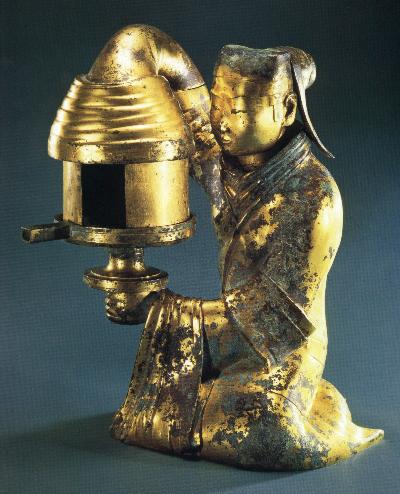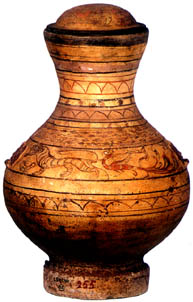| About China > History > Dynasties > dycontent |
|
|
Western Han Dynasty
As the first period of the Han Dynasty (206BC-AD220), the Western Han Dynasty (207BC-AD25) was established during the Warring States Period.
The Western Han retained much of the Qin systems, but adopted a ruling policy different from the tyranny of the Qin. Han rulers modified harsh laws, carried out the policy of rehabilitation and reduced taxes to establish a solid, material foundation for the Golden Age under the reign of Emperor Wudi (sixth emperor of the Han Dynasty). During this period, the legal system became more civilized and excruciations were also gradually abolished.
The reign of Emperor Wudi also saw new developments in China's foreign trade. The famous Silk Road is a typical example of such developments. Social-economic development also accelerated during the period, with a broadening arable land and advanced metallurgy and spinning and weaving technologies. The low-temperature steel-smelting stove, discovered at the Tieshenggou ruins in Gong County, holds an important position in the history of the world's metallurgy technology.
During the late Western Han Dynasty, social conflicts intensified due to the annexation of lands and prevalence of extravagant and corruptive practices. In such turmoil, Wang Mang, the nephew of Emperor Yuandi's wife, usurped the throne and founded the Xin Dynasty (8-23). Soon after, peasant uprisings led by the Green Woodsmen and Red Eyebrows broke out around the country, leading to Wang's downfall. In 25, Liu Xiu restored the Han regime, which was called the Eastern Han Dynasty (25-220) by Chinese historians. |
||||||
 |

